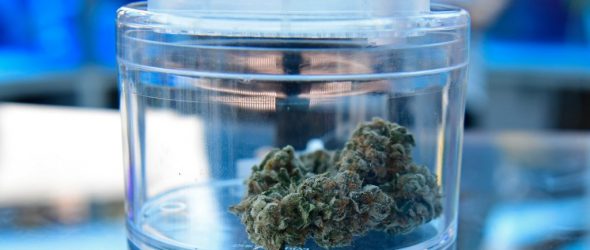Cannabis dispensaries in the Bay Area’s most populous county are closing their doors to recreational users under new orders.
Santa Clara County has stopped allowing for in-store purchases of marijuana for non-medical customers, according to the county website. The change in policy apparently occurred in the last couple days.
Recreational users can still have marijuana delivered to their homes in the county, but only those who are prescribed cannabis by a doctor will still be able to pick it up in person.
While medical suppliers can still operate, the county says suppliers must stop work on the cultivation and distribution of marijuana for recreational use.
“Non-medical cultivation, supply, and dispensing of cannabis are prohibited, with the exception of deliveries directly to residences,” the county’s Frequently Asked Questions page reads. “Dispensaries with a mixed clientele of both medical and non-medical customers can do in-person business only with medical customers.”
County officials did not immediately respond to calls for more information, including whether cultivation of cannabis was designated for medical or recreational use ahead of time.
James Anthony, an attorney who specializes in regulations and compliance in the cannabis industry, argued that there was no change in the language of the ordinance and therefore should not change whether a cannabis dispensary can be deemed legal under the order.
“It clearly fits well within healthcare operations broadly defined and broadly construed as mandated by the orders,” he said in an email.
Anthony, who called the change in policy “misguided” and “illegal”, said dispensaries were already strongly encouraging delivery and pre-ordered curbside pickup, limiting in-store customer access to the number of cashiers available and practicing strict social distancing and sanitizing practices.
“This is an extremely dangerous precedent that threatens cannabis access everywhere in California, and puts cannabis in second-class status compared to all other healthcare operations,” Anthony said in an email.
When asked what enforcement guidance officers have been given on, a San Jose police official simply referred to the county’s FAQ page.
Elsewhere in the Bay Area, counties responded differently to the issue of recreational marijuana under the initial order.
At first, San Francisco forced all dispensaries to close but within a day flipped its position and allowed for both medicinal and recreational purchase in dispensaries.
Contra Costa County’s website says recreational dispensaries cannot operate, but medical dispensaries are able to continue as normal.
Santa Cruz and Alameda counties were still allowing both recreational and medical marijuana sales in person as of Thursday afternoon.


